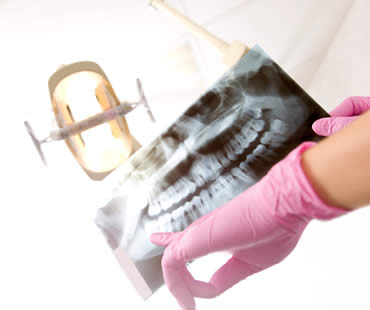Oral surgery to correct problems with the jaw is known as orthognathic surgery. Jaw issues can result from birth defects, growth changes, or injury or trauma to the face. While orthodontics can correct bite problems when only the teeth are involved, oral surgery may be required when repositioning of the jaw is necessary to correct the issue. If you suffer from any of the following concerns, orthognathic surgery may be a consideration:
- Difficulty chewing, biting, or swallowing
- Problems with opening and closing your mouth, or with speaking
- Persistent jaw or temporomandibular joint (TMJ) pain
- Clenching or grinding of teeth causing excessive wear
- Inability to make the lips meet without straining
- Un-proportional facial appearance or protruding jaw
- Malocclusion, open, or incorrect bite
- Recessive lower jaw and chin
- Habitual mouth breathing
- Sleep apnea and breathing problems
- Facial injury or trauma
Most jaw surgeries are performed entirely inside the mouth, so there are no visible facial scars. The oral surgeon makes cuts in the jawbone and repositions it to the correct position. Once aligned, screws and bone plates are used to secure the jaw. In some cases, additional bone may be taken from your hip, leg, or rib.
Orthognathic surgery is typically performed by an oral and maxillofacial surgeon in a hospital setting. Recovery time for jaw surgery typically takes three to six weeks. Your general or family dentist can refer you to a skilled oral surgeon for a consultation and examination to determine a treatment plan. Jaw surgery can improve not only your facial appearance but also your chewing, speaking, and breathing functions.
Are dental issues holding you back? Take control of your oral health by booking an appointment with our experienced team at our Somerville dental office.

